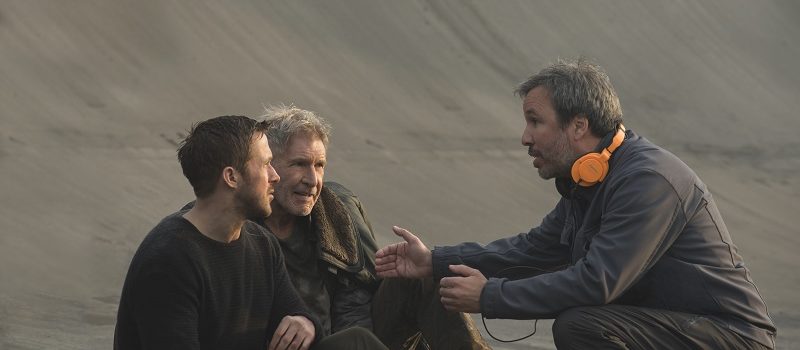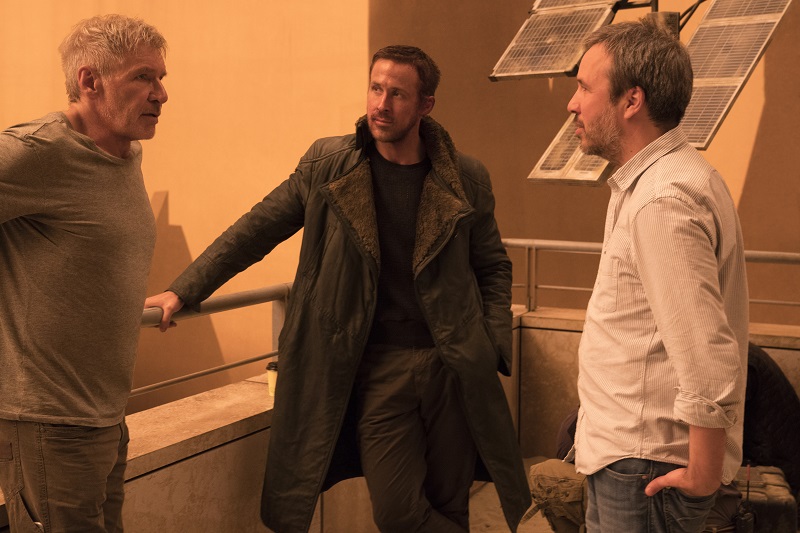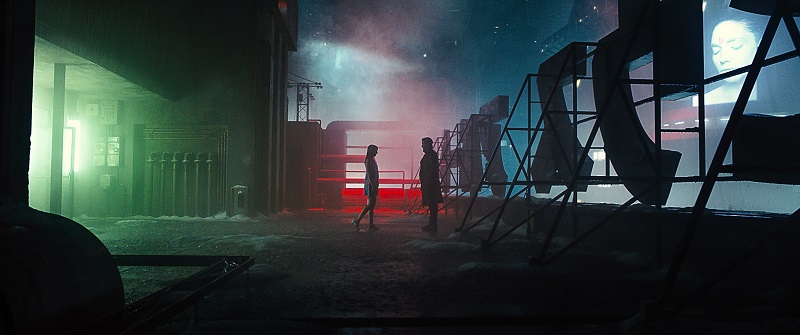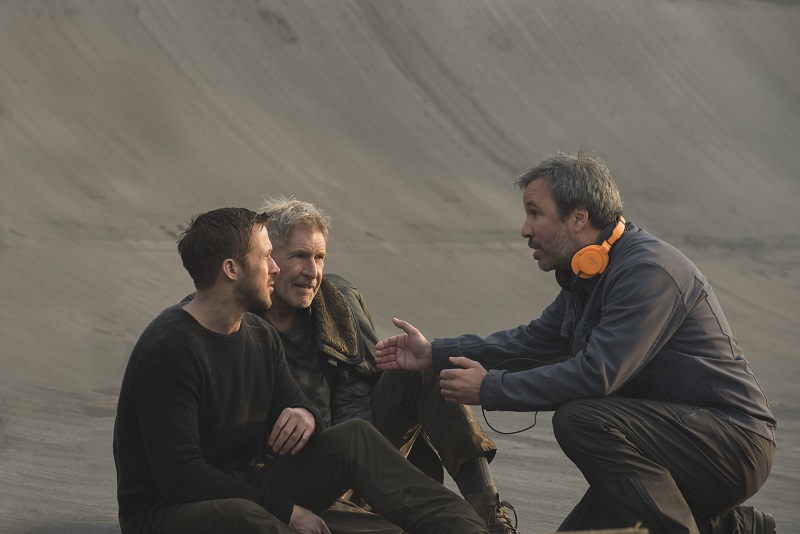Blade Runner 2049 is just hours away from debuting to an audience that has awaited for a “what’s next” from this Ridley Scott created world since his first film debuted in 1982.
We caught up with director Denis Villeneuve and star Ryan Gosling at the film’s recent press day and explored everything from how Blade Runner impacted each of them as impressionable youths. They also share how returning star Harrison Ford proved to be a priceless bridge for each to the original film as they all collectively forged a new future for this world gone mad.
When Villeneuve was given the green light to direct Blade Runner 2049, there was only one person he wanted handling the camera work as Director of Photography, Roger Deakins. “Directly from the start I said that I need to surround myself with very strong artists. When I said yes, the first thing I did was drive to Roger’s house and ask him to get on board with me. He said yes right away because Roger and I were dreaming about doing a science fiction movie together,” Villeneuve said.
Ridley Scott’s original is one of the most revered sci-fi flicks of all time, heck it’s one of the most adored movies period – regardless of genre. “Those are big shoes to fill,” the helmer said of Scott. In fact, he brought in Deakins sooner than he usually involves a cinematographer. After all, if it is one thing that Blade Runner is known for, it is its visual brilliance. The decades in the making sequel had to at least be that stunning and if Villeneuve had his way, eclipse it.
Don’t miss our Blade Runner 2049 A+ Review!
“The big difference with the movies I’ve done before was that I brought Roger very early in the process. We spent two months in Montreal in a hotel room with storyboard artists and we drew all the movie together,” Villeneuve said. “But also, we designed the movie together. The screenplay was giving us hints about what the world will be but we needed to go more specific.”
Dennis Gassner, production designer, joined them as they defined Blade Runner 2049 to its most specific element. “We created in those Montreal sessions, what will be the world from the sociologic, geopolitic, climate point of view, architecture … everything was designed. I’m really grateful. I made the movie with him all the way from day one until the very last screening. I owe him a lot. The movie owed him a lot.”
Gosling, when asked why he wanted to venture into an iconic film world when the risks of failure were so high, starts with a bit of a joke. “It sounded like Harrison had so much fun in the original. Great time, he had,” Gosling said and laughed. Although a highlight of Ford’s career, the Blade Runner shoot was notoriously challenging (and wet!).
Seriously, Gosling knew this was something special in terms of the cinematic impact the Scott original had. Simply to be considered to be a part of this world was a true honor for the recent Best Actor nominee for La La Land. “It’s a very unique opportunity. When I first saw Blade Runner, I was 12. I thought I was going to just watch a sci-fi movie. But what I experienced was something quite different,” Gosling recalled.
“What’s interesting about the film is not just the experience of watching it but how it stays with you. I wasn’t asking myself at 12 what it means to be a human being, but sub-consciously, those seeds were planted. I realize how much influence it had in the culture I grew up in.”
The moment Gosling got the script for the sequel, there was no way he wouldn’t be a part of this film that stands on its own, but also is very much a tribute to all that came before. “The script was a love letter, in many ways, to the original. Respectively carrying out the themes and narratives of the original but at the same time introducing its own conceptual ideas that still was massive in scale. At same time, [it is] intimate and personal and emotional. This is an experience unique to Blade Runner.”
Sure, being in Blade Runner 2049 is something to write home about and highlight on one’s acting resume. But, regardless of the project… a chance to work alongside a legend like Ford, well then — that’s a whole new level of must-do. From the sounds of Ford’s first day on set, it made an impression on Gosling.
“He arrived in a very cinematic way. We heard, ‘Harrison has landed.’ Then, ‘Harrison was on his way to the set.’ Then, ‘Harrison had arrived.’ It was very darkly lit. You could only distinguish people by their silhouette. Suddenly, this very distinctive silhouette appears and steps into the light. And he looks at me like I was an eight-year-old kid who just broke his window. Then, immediately [he] put us at ease. He’s the best collaborator you could ever ask for.
Villeneuve too shares reverence for the original and took painstaking steps to ensure that the film’s legacy would stay adored, and dare we say even expanded into a whole new level of fandom. It was also different because it was the first time the auteur wasn’t working from an idea that he was part of its genesis.
“What was different in this movie was to start with somebody else’s dream. I was playing with the ideas of Ridley Scott and Hampton Fancher (screenwriter). One of the toughest things for me, with this project, was to bring back Rick Deckard, Harrison’s character,” Villeneuve said.
“To my great relief, right from the start, I felt that Harrison wanted to be a part of the creative process and to help me. I would not have been able to do it alone. I needed collaboration and a dialogue.”
Through that tandem between Ford and Villeneuve, a believable, memorable and extraordinary plot was hatched in terms of how to not only bring back Deckard, but also have him play an integral part of the mystery at large that haunts all involved in Blade Runner 2049.
“At the beginning, there was a long period of silence and uncertainty, in regard to how to be bringing this character back to life. What will his mental state be when he’s been away from our eyes for 30 years? It’s a process. I love to create with actors. I love to share. That’s my goal, to share creativity with them. I think that’s what I tried to do with them, and specifically with Harrison. It was crucial, more than ever.”




